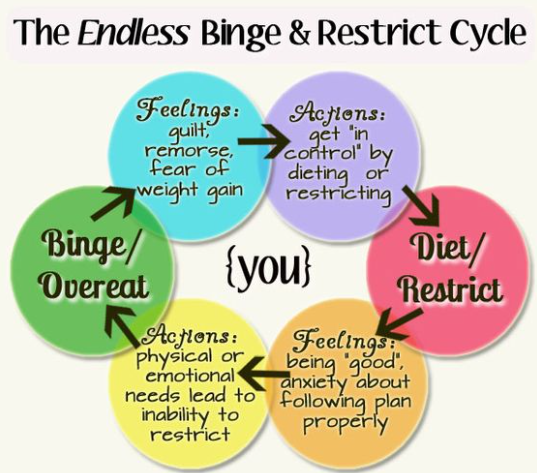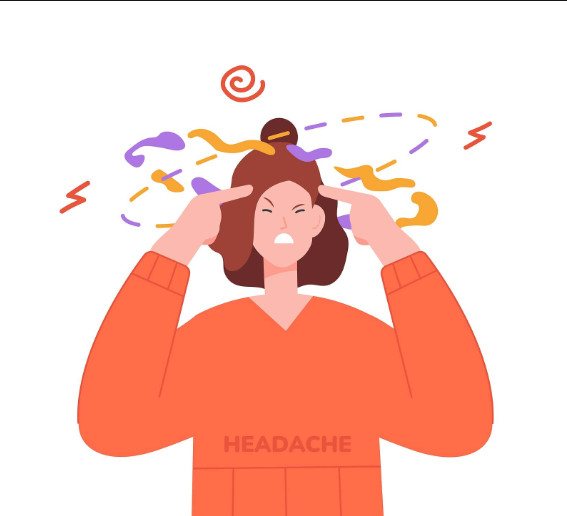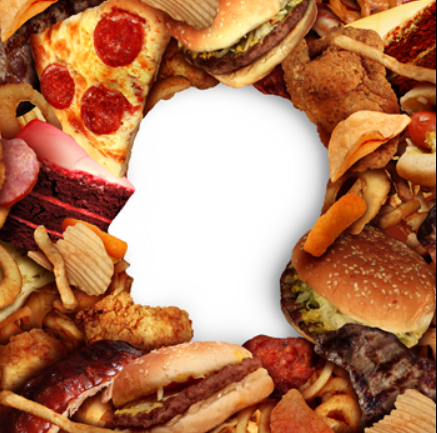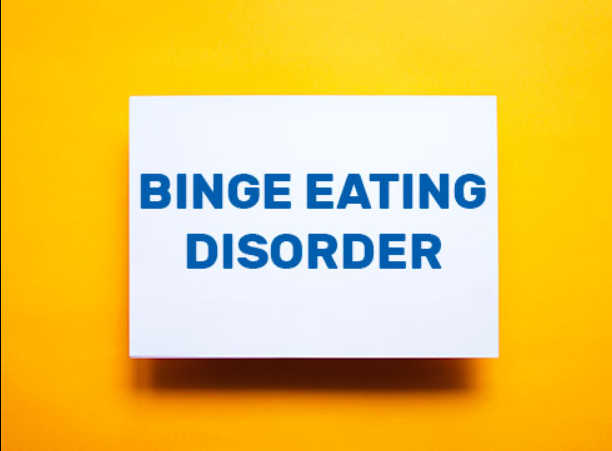Why a binge eating disorder may develop—and what you can do about it.
While many of us occasionally overeat, a person suffering from binge eating disorder will consistently overeat in a brief amount of time, even when they are no longer hungry. When it comes to food, he or she might feel irrational and ashamed of overindulging.
Binge-eating has to occur at least once a week for three months in order to receive a formal diagnosis. Binge eating disorders can occasionally occur more than once during the day. Anorexia and bulimia are two other eating disorders that are classified as binge eating disorders. But unlike those suffering from bulimia or anorexia, sufferers of binge eating disorder do not purge or throw up after eating.

Over a lifetime, 2.8% of adults have struggled with a binge eating disorder at some point, according to the National Association of Anorexia Nervosa and Associated Disorders. This makes it more common than anorexia or bulimia. Females and young adults in their late teens or early 20s are more likely to have binge eating disorders.
The Diagnostic and Statistical Manual of Mental Disorders-5, a manual used by doctors and other health professionals to help diagnose mental disorders, states that binge eating episodes are associated with at least three of the following behaviors:
- Eating much more quickly than usual.
- Eating until you’re uncomfortably full.
- Eating a lot of food, even if you’re not hungry,.
- Eating by yourself because you feel embarrassed by how much you are eating.
- Feeling disgusted, depressed, or very guilty after you eat.
A person with binge eating disorder is also concerned about his or her binge eating.
Causes and risk factors of binge eating disorder
The causes of a binge eating disorder aren’t always clear. It’s usually a mix of triggers, such as dieting frequently, being a younger female, having stress or anxiety, and even having a genetic predisposition. Another potential trigger is having lower impulse control, says Kimberly M. Daniels, a psychologist in Hartford, Connecticut, who specializes in eating disorders.

Some of the risk factors that can make people vulnerable to developing a binge eating disorder include:
- Being female. About 3.5% of women have had a binge eating disorder compared with 2% of men, according to the National Eating Disorders Association. “Females are more affected because there is more of an associated thin ideal image,” Hagman says.
- Feeling depressed or anxious. “Binging is a very emotionally driven experience,” says Hagman.
- Feeling more anxious than normal. Stress can cause some people to lose their appetite while increasing it in others.
- Being in your late teens or early 20s. Being in that age category doesn’t mean you’ll develop a binge eating disorder. However, having some of the other risk factors during your late teens or early 20s can increase your chances.
- Eating a lot. “When you restrict calories or cut out major food groups on a diet, you can be left overly hungry and unsatisfied, especially as the day goes on,” says Christina Fitzgerald, a registered dietitian nutritionist and founder of Base Sports Nutrition and Fitzgerald Nutrition in Barrington, Illinois. “This can create a vulnerable environment to binge on food that was restricted.”
- Feeling bad about one’s body. Dieting may seem like the way to go if you want a better body, but it can also put your body in starvation mode, which increases appetite and can result in binge eating.
- Having poor coping mechanisms in life.
- Thinking in terms of all or nothing. “People try to eat perfectly, and when they fall off the wagon, which they inevitably will, they go overboard in the other direction,” says Daniels.
- Leaving an underlying traumatic stress disorder.
- Being teased about your weight by others.
- Settling for unhealthy relationships. A person with binge eating disorder may think that an unhealthy relationship is the only kind of relationship he or she can get. This is often tied in with poor self-esteem and body image issues, Daniels says.
- Having a family history of binge eating. There could be a genetic link, or it could be behavior you have seen over time. “If binge eating is modeled for you as the norm, it makes sense that you would adapt the same behavior,” Daniels says.
Symptoms
- Binging needs to take place at least once a week over three months or more to be considered a binge eating disorder. Other symptoms include:
- Eating a lot of food in a short time—under two hours. The exact amount of food isn’t formally defined, but it has been described as more than what most people might normally eat.
- Eating alone or in secret.
- Eating even if you’re not hungry.
- Eating until you’re uncomfortably full.
- Having marked changes in your weight that can be caused by binge eating and restricting food.
- Having stomach cramps.
- Stealing or hoarding food.
- Adopting severe eating habits, like orthorexia,. “Even eating a very healthy diet may cause symptoms. This is becoming increasingly typical,” Daniels claims.
- Having a heavy weight and weight loss focus.
- Bloating the budget on groceries.
- Organizing your time differently to allow for bingeing.
- Having guilt about your physique and binge eating. They frequently have people around them telling them to eat less because they feel like no one understands them. They frequently experience severe loneliness, according to Daniels.

Diagnosis
When seeking weight loss advice from a registered dietitian or primary care physician, an individual suffering from binge eating disorder may become cognizant of their disorder. Hagman suggests that medical practitioners, including primary care physicians, should regularly inquire about their patients’ eating habits, particularly if they consume large amounts of food quickly.

“They’re asking about it, but not enough,” she continues. She continues, “Health professionals can highlight that binge eating disorder is something that can be treated by raising awareness about it and asking questions.” Unrecognized and undiagnosed binge eating disorders affect many people.
- Blood work.
- A urine test.
- A sleep study.
- A physical exam.
Treatment
There are several ways to treat binge eating disorders, including therapy, dietary counseling, and medications.

These treatments are often used at the same time and involve a team of health professionals, including a medical doctor, a mental health professional such as a psychologist or psychiatrist and a dietitian. “They collaborate with the goal of helping the person find balance,” Fitzgerald says.
Most treatment for binge eating disorders is done in an outpatient setting. This could mean seeing a therapist and dietitian for help once a week or taking part in intensive outpatient groups two to five times a week, Daniels says. Binge eating disorder can also be treated in an inpatient or residential treatment facility that will include individual, group, and family therapy as well as other treatments.
Also read: Illuminating Eating Disorders: Insurance Data Points To Who’s Suffering
images source: Google
Disclaimer: The opinions and suggestions expressed in this article are solely those of the individual analysts. These are not the opinions of HNN. For more, please consult with your doctor.




































